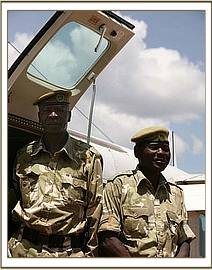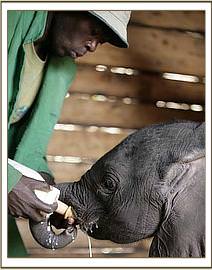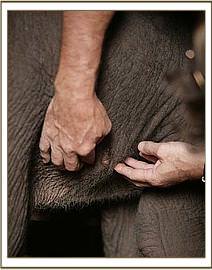24th February 2009 saw the arrival of the 5th orphaned elephant baby into our Nairobi Nursery this month, leaving us all reeling
24th February 2009 saw the arrival of the 5th orphaned elephant baby into our Nairobi Nursery this month, leaving us all reeling. Had we not lost Loimugi, Muti and little Milgis, and moved Wasessa, Siria, Shimba and Mzima to the Voi Rehabitation facility sooner than planned, the number of orphans in our Nairobi Nursery would have hit 20, whereas the most we have ever had to cope with previously in all the years we have been operating, and then only once, has been 12. An escalation of poaching countrywide exacerbated by the presence of Chinese Ivory Buying Middlemen, drier than normal weather conditions, an escalating human population, plus the down-turn in tourism due to the current global financial crisis, are all factors that have contributed to the current very worrying plight of elephants and, indeed, all wildlife in the country.
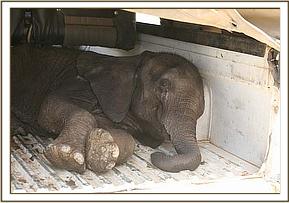
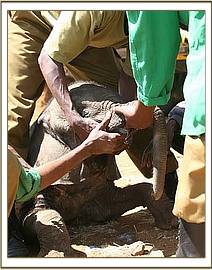

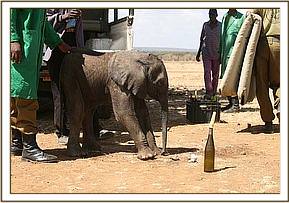
The latest arrival, a two month old baby bull called Karisia, was found wandering aimlessly all alone near a watering point outside the Karisia forest near the town of Maralal, emaciated and near dead from milk deprivation obviously having been without his mother for some time. His tiny solitary footprints were first noticed by a two man KWS patrol (Rangers James and Charles) within the forest itself, who, diligently followed them for several kilometres before happening upon the calf itself. By the time the rescue plane arrived at Mugie Airfield to collect the latest orphan, (named “Karisia”), he was almost in a state of collapse, his capture having drained what little reserves remained within his frail body. Keeper Stephen, managed to insert a Dextrose drip into an ear vein once the calf had been loaded onto the plane, and were heartened when the little elephant began to stir again during the flight. Upon arrival at the Nursery he was sufficiently strong to stand, and managed to down 3 pints of milk hungrily, as well as rehydrants. Placed in the stable next door to baby Kibo, he slept well during the night, and also fed well, passing mud which he had obviously ingested to ease his hunger. His rescue recalled that of Suguta, who was likewise found in a comatose condition and was revived by the drip being inserted before being airlifted to safety. The Rangers responsible for saving this elephant’s life probably remember Suguta and are to be commended for saving the life of yet another baby elephant who faced certain death. Sadly, this baby elephant died suddenly on the 1st March, as we never did manage to control his stomach.
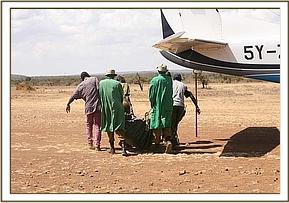
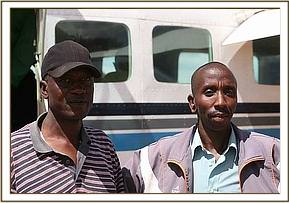
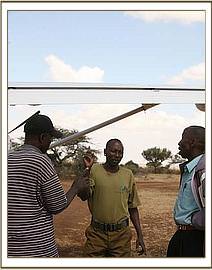
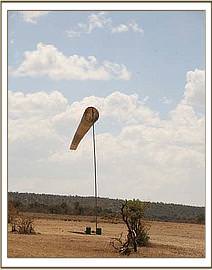

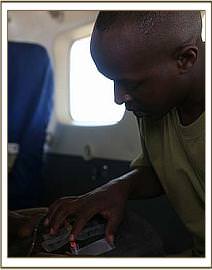
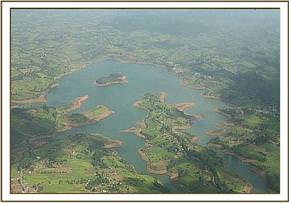
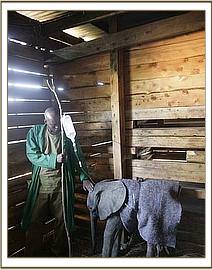

Soit:
This baby elephant of about l month old was heard bellowing during the night of the 25th February 2009 near a Maasai village in the Chyulu's ecosystem. On the morning of 26th February a Maasai Elder named Ole Nyankoi went to investigate and found the lone calf. He reported its presence to KWS personnel based in area, and coordinators Edward M. Nkoitoi (Warden Operations) and Jane Gitau (Warden in Charge) detailed Cpls. Simion Orori and William Suju to initiate the rescue, assisted by Rangers Fred Odour, Makario Gitonga and Samwell Ngesttu. They went to the area and managed to capture the calf which was alone, without any other elephants in sight. Having bound its legs, they then transported it to Kichwa Tembo Airstrip via the Oloololo Gate, eventually arriving there at 1.15 p.m. after a long grueling drive on a bumpy track. The rescue plane was already at the Airstrip, so the calf was loaded and flown to Nairobi, arriving at the Nursery at 6.30 p.m. It was extremely stressed, with a spear wound it its side and very young. Diarrheoa then set in within a day, and the calf began breathing very heavily, so a saline drip was inserted into an ear vein to try and keep him rehydrated. However, despite all our efforts which involved massive doses antibiotics we could not get control of the diarrheoa and our little calf passed away during the night of 2nd March 2009.


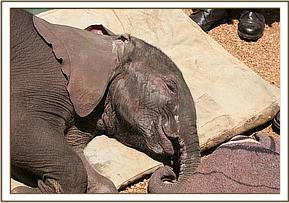

The post-mortem autopsy undertaken the following morning by the Vet pronounced the lungs clear, so the cause of death was diarrheoa related rather than the usual dreaded pneumonia we had suspected because of the breathing, which was caused by diarrheoa related acidosis. Various samples were taken for further laboratory examination and sensitivity tests on the faeces which turned up the Rota virus as being the cause of death. This virus is apparently common in young animals, and was likely to have been transmitted by the domestic livestock that are very prolific in the area where the calf originated. The fact that it was a viral infection that led to the death of the calf explains why the antibiotics proved ineffective.
